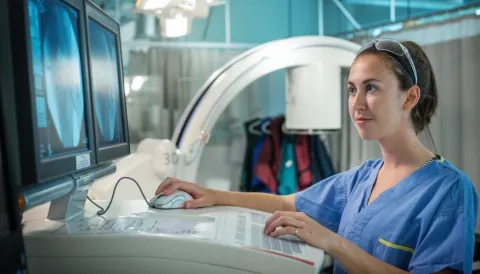BC government invests in more UBC biomedical and manufacturing engineers

The Government of BC has committed funds for the creation of 624 spaces in undergraduate engineering and computer science programs at the University of British Columbia, it was announced today. The funding, which will be provided on a recurring basis over the next five years, aims to address an urgent challenge: the widening gap between the demand for and supply of skilled workers in BC’s technology sector.
“We are thankful for the province’s support, which will allow us to not only provide students with exciting new educational and work opportunities, but also contribute to the growth and retention of BC-based tech companies,” said James Olson, PEng, Dean of the UBC Faculty of Applied Science (APSC). “As the global market for top technical talent becomes increasingly competitive, the need for a thriving local tech scene becomes ever more imperative. We look forward to helping meet this need.”
The gap between tech talent supply and demand in BC was the subject of a 2016 report by the British Columbia Technology Industry Association, which forecasted that under current conditions, only 16,500 workers will be available to fill 47,000 technology-related jobs by 2021. In addition to immigrants, career transitioners, re-skilled workers and members of underrepresented groups, the report calls for more high-quality post-secondary graduates — 12,500 of them — to make up for the shortfall.
In late 2017, Melanie Mark, the BC Minister of Advanced Education, Skills and Training, met with tech companies and post-secondary institutions around BC in an effort to determine what seat allocations would best align with industry needs. Ultimately, these consultations have led to the following allocations at UBC: 355 seats to biomedical engineering, and a total of 269 seats to manufacturing engineering and computer science.
One of the fastest-growing disciplines in North America, biomedical engineering is responsible for the development of technologies ranging from artificial organs and medical robots to advanced physiological modelling and data analysis tools. Last year, UBC took steps to establish itself as a major presence in the field in Canada, creating a School of Biomedical Engineering — led by prominent stem cell researcher Peter Zandstra — and a new undergraduate biomedical engineering degree program, which will welcome its first cohort this fall.
“Educated not only in engineering, but also in human biology and clinical practice, biomedical engineers draw upon a unique set of skills to tackle the most pressing medical and healthcare challenges we face today,” said Olson. “Undergraduates will have an opportunity to learn from some of the most distinguished engineers, clinicians and biologists in Canada, and wherever this flexible degree takes them, they will be equipped to make a major positive impact on public health.”
“UBC is the first university in Western Canada to recognize the importance of biomedical engineering with a school of its own,” notes Dermot Kelleher, Dean of the UBC Faculty of Medicine. “By adding undergraduate courses to the school’s existing offerings, we will give some of British Columbia’s most promising students a head start in charting their course in this burgeoning field, on their way to becoming scientists, technologists and entrepreneurs who can find new solutions to health care’s most critical needs.”
APSC is also currently preparing a new undergraduate program in advanced manufacturing engineering, where big data analytics and artificial intelligence, among other things, are used to create next-generation digital machining systems. The program will be headed by members of the advanced manufacturing cluster at UBC Vancouver and Okanagan, whose research successes are revitalizing Canada’s manufacturing sector and have the potential to transform the aerospace, automotive, energy, machinery and medical device industries.
BC’s tech sector currently employs approximately 106,000 people at more than 10,200 businesses and generates over $29 billion in revenue. Melanie Mark announced a total of 2,900 provincial tech seats during a visit to Simon Fraser University’s Surrey campus this morning. For more information, please visit: Students and tech sector to benefit from tech-programming expansion.